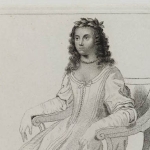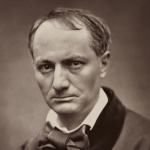Then a hermit, who visited the city once
a year, came forth and said, Speak to us of
Pleasure.
And he answered, saying:
Pleasure is a freedom-song,
But it is not freedom.
It is the blossoming of your desires,
But it is not their fruit.
It is a depth calling unto a height,
But it is not the deep nor the high.
It is the caged taking wing,
But it is not space encompassed.
Ay, in very truth, pleasure is a freedom-
song.
And I fain would have you sing it with
fullness of heart; yet I would not have you
lose your hearts in the singing.
Some of your youth seek pleasure as if it
were all, and they are judged and rebuked.
I would not judge nor rebuke them. I
would have them seek.
For they shall find pleasure, but not her
alone;
Seven are her sisters, and the least of them
is more beautiful than pleasure.
Have you not heard of the man who was
digging in the earth for roots and found a
treasure?
And some of your elders remember
pleasures with regret like wrongs com-
mitted in drunkenness.
But regret is the beclouding of the mind
and not its chastisement.
They should remember their pleasures with
gratitude, as they would the harvest of a
Yet if it comforts them to regret, let them
be comforted.
And there are among you those who are
neither young to seek nor old to remember;
And in their fear of seeking and remem-
bering they shun all pleasures, lest they
neglect the spirit or offend against it.
But even in their foregoing is their
pleasure.
And thus they too find a treasure though
they dig for roots with quivering hands.
But tell me, who is he that can offend the
spirit?
Shall the nightingale offend the stillness of
the night, or the firefly the stars?
And shall your flame or your smoke
burden the wind?
Think you the spirit is a still pool which
you can trouble with a staff?
Oftentimes in denying yourself pleasure
you do but store the desire in the recesses
of your being.
Who knows but that which seems omitted
today, waits for tomorrow?
Even your body knows its heritage and
its rightful need and will not be deceived.
And your body is the harp of your soul,
And it is yours to bring forth sweet
music from it or confused sounds.
And now you ask in your heart, “How
shall we distinguish that which is good in
pleasure from that which is not good?”
Go to your fields and your gardens, and
you shall learn that it is the pleasure of
the bee to gather honey of the flower,
But it is also the pleasure of the flower
to yield its honey to the bee.
For to the bee a flower is a fountain of
life,
And to the flower a bee is a messenger of
love,
And to both, bee and flower, the giving
and the receiving of pleasure is a need and
an ecstasy.
People of Orphalese, be in your pleas-
ures like the flowers and the bees.

















Comment form: